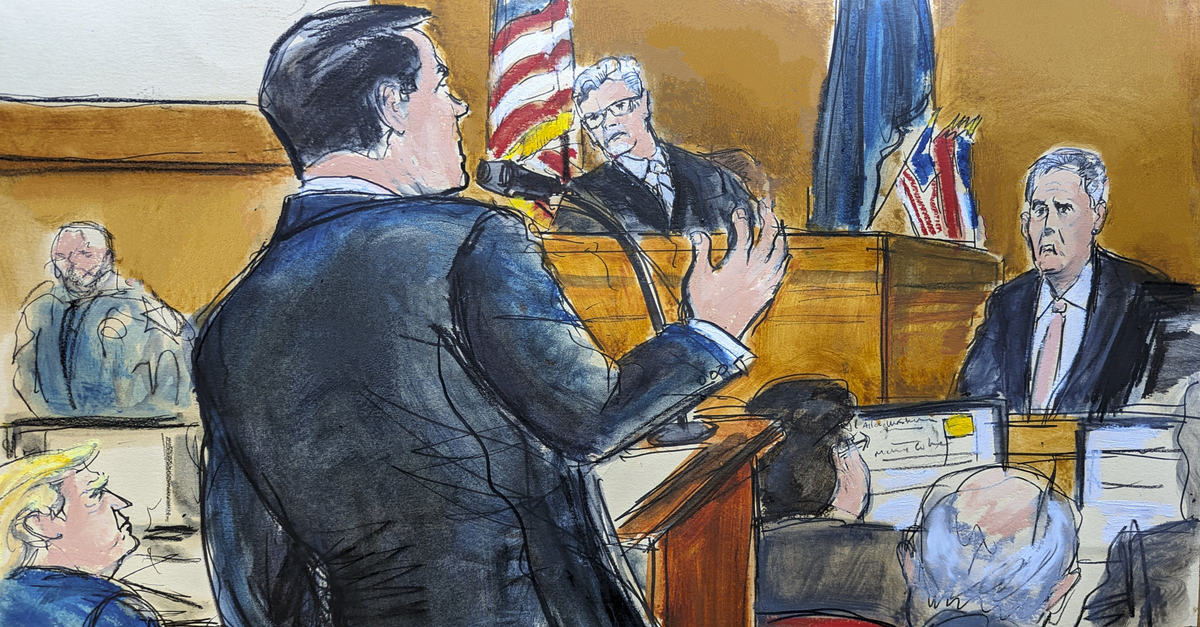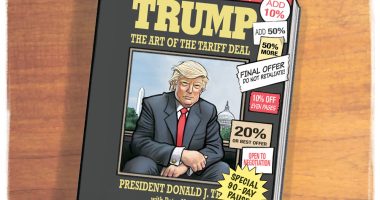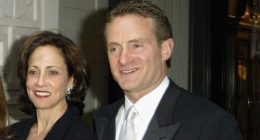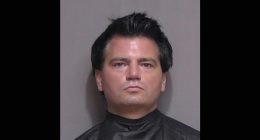
Donald Trump, far left, watches as defense attorney Todd Blanche, at podium, cross examines Michael Cohen on the witness stand with Judge Juan Merchan presiding in Manhattan criminal court, Monday, May 20, 2024, in New York. (Elizabeth Williams via AP)
Efforts to undermine the credibility of Michael Cohen, 57, continued apace on Monday in New York County Supreme Courtroom 1530.
The prosecution’s case requires jurors to make one leap in particular: from Cohen’s admitted payment of $130,000 in hush-money to adult content creator Stormy Daniels, 45, to believing that payment was at the behest of — and was later on covered up by — Donald Trump, 77.
The defense believes the key to breaking the state’s logic apart resides in the fact that Cohen is a well-documented, and admitted, liar. And, if the multiple days of cross-examination are any indication, the 45th president’s team believes flogging that horse repeatedly will reveal the star witness’ testimony is fundamentally unreliable.
Prosecutors say the underlying crimes occurred when the Trump Organization — OK’d by Trump himself as an account signatory — issued a series of 34 fraudulent documents and checks and made corresponding business ledger entries that sought to mask Cohen’s payback for the Daniels payoff and make it appear legitimate.
In the end, Cohen received $420,000 throughout 2017 from Trump for what was marked down in the books as legal services. The state says those payments included the hush-money total. The witness, for his part, confirmed the prosecution’s storyline on direct examination.
Getting from the $130,000 Daniels payment to the $420,000 Cohen was paid after the fact requires complex arithmetic and explanations — which jurors were previously made privy to during testimony from former Trump Organization lead accountant Jeffrey McConney.
All of that, of course, depends on credibility and narrative.
On Monday morning, the defense looked to take another admitted chunk out of Cohen’s believability.
Attorney Todd Blanche drilled into the details of the aforementioned math and billing — which necessarily also involved Trump Organization CFO and trustee at the time Allen Weisselberg, who would go on to be convicted of tax evasion over unrelated financial crimes, according to a report by New York Daily News reporter Molly Crane Newman.
And in dealing with Weisselberg, Cohen also told a lucrative lie.
In addition to the amount Cohen paid to Daniels using a home equity loan from First Republic Bank, he was also reimbursed $50,000 for hiring a company called RedFinch to game online polls in then-candidate Trump’s favor in 2016, notes from Weisselberg showed, according to a report by Just Security fellow Adam Klasfeld.
But, perhaps crucially, Cohen never actually spent $50,000 on the services rendered by RedFinch. Not even half that.
Rather, the witness admitted, he withdrew $20,000 in cash over the course of “a couple” days, in increments he could not recall, because he didn’t want to withdraw such a large amount all at once, put the cash in a brown paper bag, and then paid the consulting company’s owner, according to a report by MSNBC personality Katie Phang.
Blanche made it plain for jurors, asking: “So, you stole from the Trump Organization, right?”
To which Cohen replied: “Yes, sir.”
This admission from the witness elicited a rare response from the defendant — who has often kept his eyes closed, while insisting he is not sleeping but resting, during the trial so far, according to a report by the New York Times. When Cohen confirmed the $30,000, Trump shook his head in disapproval.
“Did you have to plead guilty for larceny?” Blanche pressed on, according to a report by Newsweek reporter Katherine Fung. “Did you have to pay back the Trump Org for the money you stole from them?”
Cohen replied in the negative.
Later on, the defense sought to establish that Cohen was not only dishonest but motivated by greed — and was lying in service of siphoning more funds away from his now-former boss.
The question from Blanche was simple enough: “Do you have a financial interest in this case?”
Cohen said that he did.
That admission, however, appeared to be somewhat blunted as the defense attorney pressed on. Cohen eventually said a conviction would probably result in him making less money off Trump — since his income in that regard is based on social media clicks, according to a report by Law&Crime Network reporter Terri Austin.
Eroding Cohen’s trustworthiness — while presenting him as particularly venal — is of a piece for the defense’s effort to obtain a hung Manhattan jury. And they seem to have had some success so far.
Last week, Blanche elicited testimony from Cohen that he called Trump’s then-bodyguard, Keith Schiller, on Oct. 24, 2016, to say the effort to stop Daniels from talking about an alleged tryst had been resolved. After calling Schiller, Cohen testified, Trump got on the line and learned the adult content creator would soon be paid for silence.
But, apparently, the Daniels matter was not all Cohen wanted to, or did, discuss during that brief phone call — which jurors just learned Thursday lasted exactly one minute and 36 seconds. Away from the public’s view, jurors and the witness were shown a series of text messages between Cohen and Schiller.
As it turns out, Blanche established, Cohen had been complaining to Schiller about a series of prank phone calls he received several days in a row. And, in those texts, Cohen said he wanted to raise the issue with Schiller because he had learned the prank caller was a 14-year-old, had their number, and wanted Schiller to talk to the child’s parents.
The defense attorney, in the end, likely cast credible doubt on Cohen’s testimony that in 96 seconds he discussed the prankster with Schiller and then discussed the Daniels payment with Trump.
Whether the defense painted Cohen as a big enough liar to cast doubt in jurors’ minds is an open question — but that is decidedly what the state sought to clean up as they began redirect early Monday afternoon.
Have a tip we should know? [email protected]








